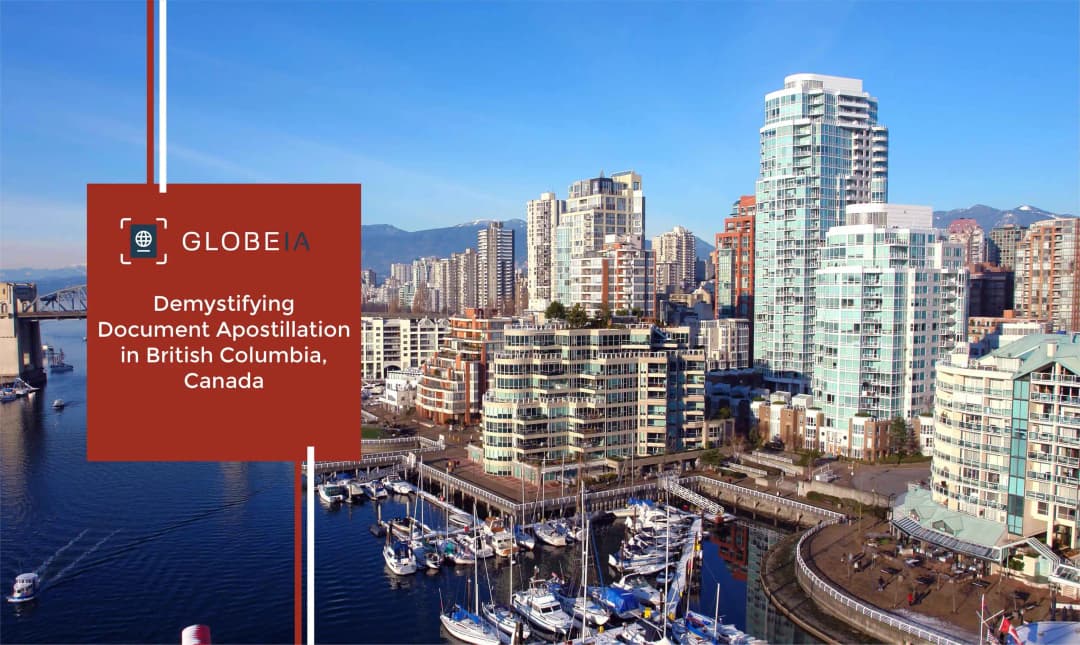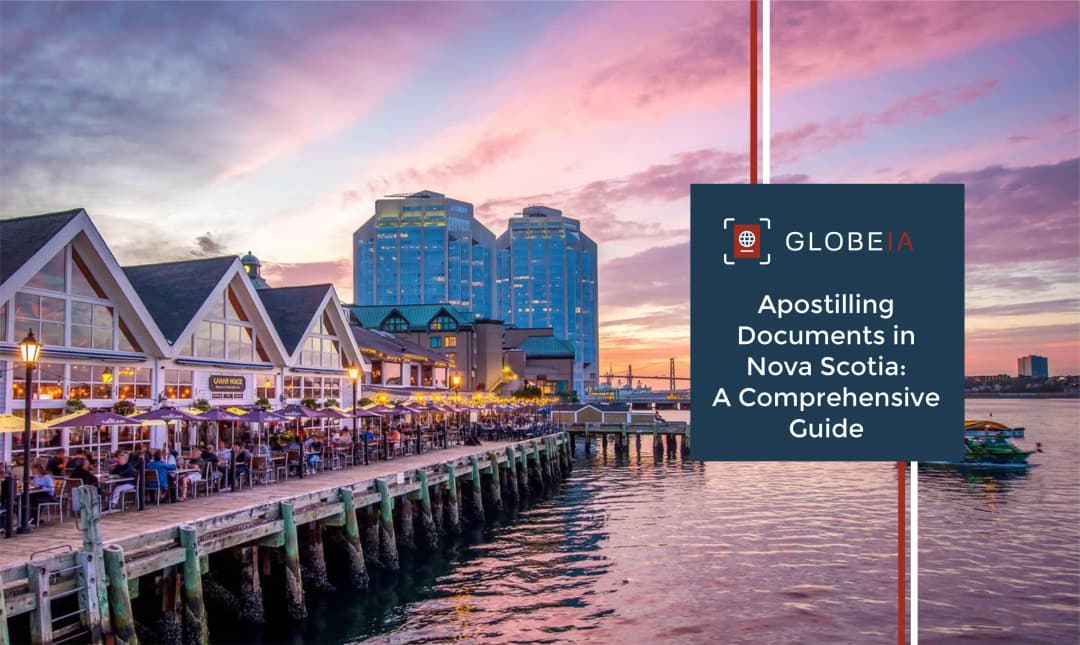
The need for official document recognition across international borders is increasing, making apostilling crucial in Nova Scotia. This process ensures the authenticity of educational, personal, or commercial documents for international use. Nova Scotia's diverse population and numerous international connections make it a popular destination for this service. The apostille process acts as a seal of approval from Canada, attesting to the authenticity of the documents. This blog provides a comprehensive understanding of the apostille process in Nova Scotia, equipping individuals with the knowledge to navigate it confidently.
An apostille is a form of authentication issued to documents for use in countries that participate in the Hague Convention of 1961. The US State Department lists countries that accept apostilles, while if the intended country does not participate, documents can be "authenticated" or "certified." The Apostille Convention outlines the modalities through which a document issued in one country can be certified for legal purposes in all other signatory states. The necessity of an apostille is crucial when a document issued in one country needs to be used in another, as without it, the document's authenticity could be questioned and not recognized or accepted. Thus, an apostille is a vital tool in international document verification, providing a standardized method of validating document authenticity and making international dealings smoother and more straightforward.
Canada's recent membership in the Hague Apostille Convention has simplified the process of obtaining an apostille in all provinces, including Nova Scotia. The process involves document preparation, including ensuring the document is correctly filled out and notarized if necessary. The document is then taken to Global Affairs Canada for the apostille, where they verify the signature and place an apostille certificate on it, confirming its authenticity. This standardized document is recognized by all countries participating in the Hague Convention, making it valid in all Hague Convention countries without the need for further legalization. The importance of the apostille process in Nova Scotia cannot be overstated, as many Nova Scotians need to authenticate documents for use abroad, such as studying in a foreign university, conducting international business, or marrying overseas. The apostille process is crucial for many international activities, and Canada's recent membership in the Hague Convention has made it more straightforward and efficient than ever before.
To obtain an apostille in Nova Scotia, you need to prepare an original, in good-condition document. If it's not in English or French, it may need translation by a certified translator. Some documents may need notarization, which confirms the authenticity of the document or signatures. Consult with relevant authorities or a professional apostille service consultant. Once prepared, apply for an apostille at the Department of Global Affairs, Canada, filling out an application form and paying a fee. The document will be verified and attached to an apostille certificate. The apostilled document is ready for use in any Hague Apostille Convention-member country. It's crucial to check the specific requirements for your document type and the country you intend to use.
Nova Scotia provides a variety of apostille services, including government offices and private agencies. The Department of Global Affairs is the primary source for issuing apostilles, offering comprehensive knowledge and support. Private agencies specialize in handling the entire process, saving time and effort for those unfamiliar with the process. Online apostille services have gained popularity due to digital technology, making them convenient for those unable to visit a service center in person or short on time. Choosing the right apostille service depends on your specific needs and circumstances, including researching the service, asking questions, and checking credentials. A reputable service provider should answer all questions and provide the necessary information. Lastly, ensure the service is legitimate, registered, and has a good reputation.
The Canadian apostille, a seal of authenticity recognized by all Hague Apostille Convention member countries, has become more streamlined and uniform across Canada, including Nova Scotia. This has significant implications for Nova Scotians, who frequently engage in international affairs. The Canadian apostille simplifies the process of document authentication, saving time and effort, and reducing the potential for errors or delays. There is no difference between a Nova Scotia apostille and a Canadian apostille, as the process and resulting apostille are the same across all provinces and territories in Canada. An apostille obtained in Nova Scotia is a Canadian apostille and carries the same weight and benefits as an apostille obtained in any other part of Canada. Understanding the apostille process is essential for global citizenship for Nova Scotians.
The apostille process is a crucial step in validating documents for international use. To avoid mistakes, check if notarization is required, use original documents, and check the intended country's requirements. Apostilles can only be attached to original documents, and copies, even notarized ones, are not acceptable. Additionally, ensure to check the specific requirements of the country where you intend to use the document. If you're unsure about any part of the process, professional help is available through Globeia's Apostille Service.
This blog provides a comprehensive guide on obtaining an apostille in Nova Scotia, an important step for validating documents for international use. It explains the significance of the apostille, its process, and the various apostille services available in Nova Scotia. The blog emphasizes the importance of checking specific requirements for each document type and the country where it will be used. If unsure, professional help is available from both government and private services. Your goal is not just to obtain an apostille, but to get it right, a key part of participating in the global community.
“Curated insights and top reads handpicked for the Globeia community.”



Have questions or need support? Our team is here to guide you through secure, reliable background checks—anywhere in the world.
![]() Canada
Canada
1185 Victoria Park Avenue, Toronto, ON, M4B 2K5
![]() USA
USA
251 Post Street, Unit-300, San Francisco, CA, 94108


Need help with your application or background check?
Contact us now and speak with a dedicated Globeia expert today.